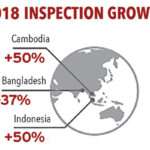The Federation of Malaysian Manufacturers (FMM) has urged for the postponement of the service tax implementation for logistics services, citing the need for thorough evaluation to mitigate its adverse effects on manufacturers and the general public.
FMM President, Tan Sri Soh Thian Lai, emphasized in a statement the organization’s apprehension regarding the escalation of service tax rates, particularly on logistics services. This increase is seen as burdensome and could significantly impact all facets of the logistics supply chain.
As outlined in Budget 2024, the government announced a hike in the service tax from 6% to 8% for taxable services, excluding food and beverage, telecommunications, and parking space provision. Additionally, the scope has been expanded to include logistics services beyond forwarding agents, couriers, air transport, and warehousing, taxed at a rate of 6%, effective March 1, 2024.

“We understand that the Finance Ministry is considering providing business-to-business (B2B) tax exemption for service providers providing similar logistics services to ensure no taxes are levied among themselves but only to the final consumer,” Soh said.
FMM has proposed extending the B2B tax exemption status provided to logistics service providers to encompass the services and manufacturing sectors. This would ensure that businesses holding a sales and service tax (SST) license are not subject to sales or service taxes.
“This will mean only the wholesale, retail and final consumer or non-registered SST business will pay the SST.
“We understand our recommendations will require further study and amendments to be made to the law such as bridging the Sales Tax and Service Tax Acts and Regulations or developing supplementary legislation to support the B2B tax exemption between manufacturers and service providers,” he added.
“Considering that the service tax on logistics impacts not only manufacturing operations but its entire supply chain, we appreciate if the government could further consult with the industry to resolve all the concerns and introduce an effective exemption mechanism before the implementation of the taxation is finalised,” he said.

